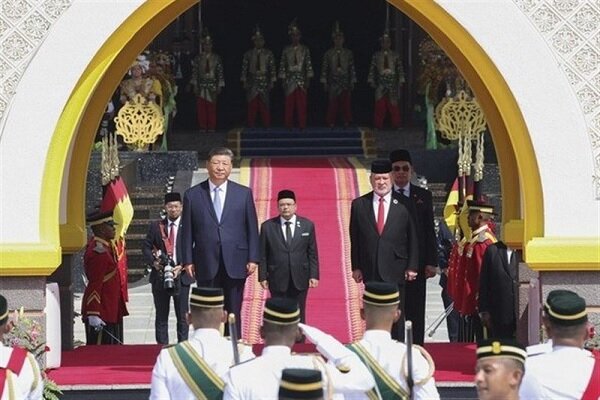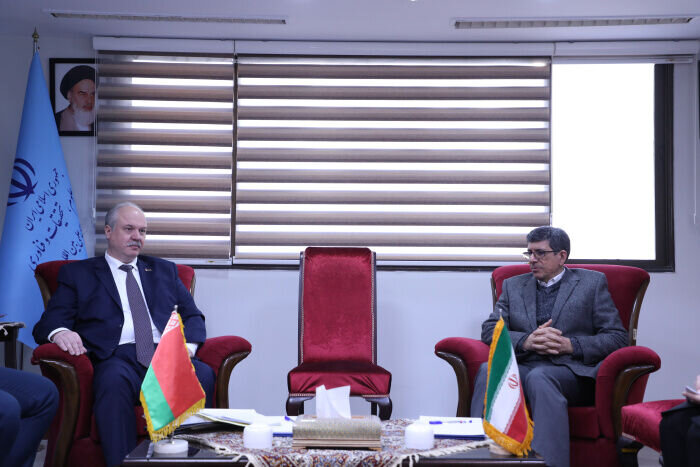China Emerges as a Stronger Ally than the US in the Wake of Trump’s Trade War
Chinese President Xi Jinping’s recent visit to Malaysia marks a significant moment in international relations, highlighting the importance of China-Malaysia cooperation in various sectors. This visit, his first since 2013, comes on the heels of his trip to Vietnam, where he signed multiple trade agreements aimed at enhancing collaboration in areas such as artificial intelligence and rail development.
Upon arrival in the Malaysian capital, Kuala Lumpur, on Tuesday evening, Xi emphasized the importance of high-level strategic cooperation between China and Malaysia. He stated that such collaboration would benefit the common interests of both nations and contribute to peace, stability, and prosperity in the region and beyond, as reported by the official Malaysian news agency, Bernama.
Xi’s three-country tour is not just a diplomatic gesture but also a strategic move to convey a message to Southeast Asia. It positions Beijing as a more favorable partner compared to the current U.S. administration, which has faced criticism for its trade policies, particularly the imposition of substantial tariffs on various countries.
As members of the 10-nation Association of Southeast Asian Nations (ASEAN), many countries have expressed dissatisfaction with the treatment they have received from the United States. This context makes Xi’s visit particularly timely and significant.
Here are some key points regarding Xi Jinping’s visit to Malaysia:
- First visit since 2013: Xi’s arrival marks his first official trip to Malaysia in a decade, indicating a renewed focus on bilateral relations.
- Trade agreements in Vietnam: Prior to Malaysia, Xi signed numerous trade cooperation agreements in Vietnam, covering various sectors including technology and infrastructure.
- Strategic cooperation: Xi underscored the importance of deepening strategic ties, emphasizing mutual benefits and regional stability.
- ASEAN relations: The visit comes at a time when several ASEAN countries are reevaluating their relationships with global powers due to recent trade tensions.
This visit underscores China’s commitment to fostering closer ties with its Southeast Asian neighbors, especially in light of shifting geopolitical dynamics. Xi’s approach aims to reassure these nations of China’s role as a reliable partner for economic growth and development.
In the broader context of international relations, Xi’s tour reflects a strategic pivot towards strengthening alliances in Southeast Asia, a region that has become increasingly significant amid the ongoing rivalry between China and the United States.
During his time in Malaysia, Xi is expected to engage with Malaysian leaders to discuss various bilateral issues and explore new avenues for collaboration. The discussions will likely focus on:
- Economic partnerships: Exploring opportunities for investment and trade that align with both nations’ economic goals.
- Cultural exchange: Promoting cultural ties to enhance mutual understanding and goodwill.
- Infrastructure development: Collaborating on infrastructure projects that can benefit both countries economically.
Moreover, Xi’s visit is not just about trade; it’s also about fostering a sense of community and partnership in the region. As Southeast Asia navigates the complexities of global trade and diplomacy, leaders like Xi play a pivotal role in shaping the narrative of cooperation and mutual respect.
As the meeting progresses, it will be interesting to see how both nations articulate their shared vision for the future and work towards achieving common goals. The outcomes of these discussions could have lasting implications for not only China and Malaysia but for the entire Southeast Asian region.
In conclusion, Xi Jinping’s visit to Malaysia is a critical step towards enhancing China-Malaysia relations and positioning China as a key player in Southeast Asia’s economic landscape. With ongoing trade tensions and geopolitical shifts, this visit serves as an opportunity for both nations to reaffirm their commitment to collaboration and mutual growth.
The focus on strategic cooperation, economic partnerships, and cultural exchanges highlights the potential for a stronger alliance that can withstand the challenges posed by external pressures. As China continues to expand its influence in the region, such visits will play a crucial role in redefining diplomatic relations in Southeast Asia.






